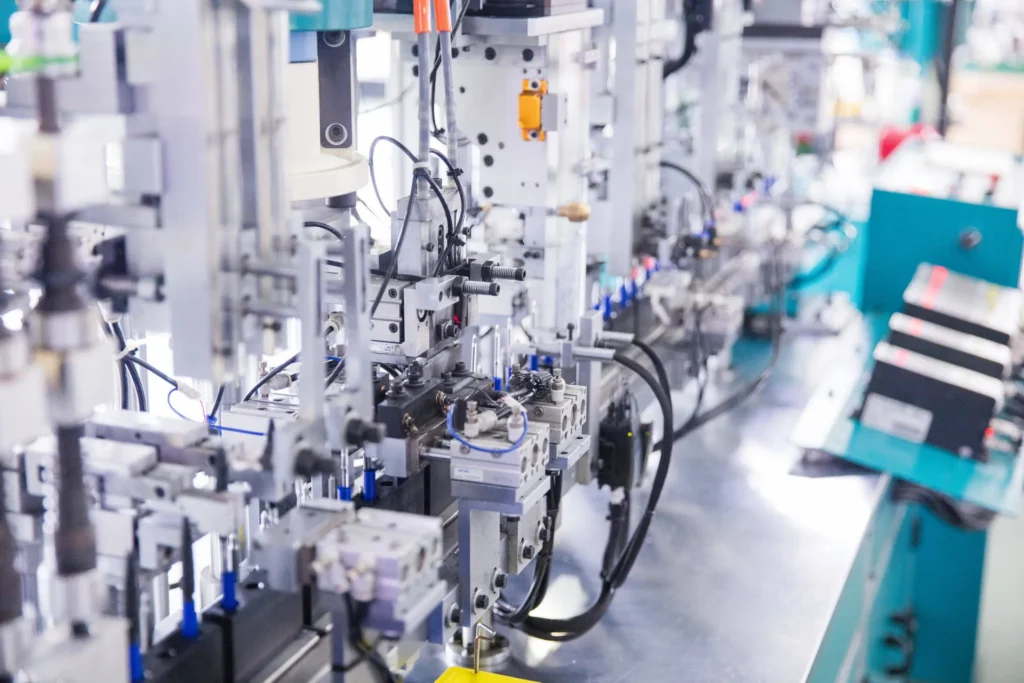As mergers and acquisitions continue to shape the connector industry globally, China’s connector market is no exception. Foxconn, a household name in China and a major contractor for Apple, plays a pivotal role in this space. However, it is essential to distinguish this from Industrial Fulian, a publicly listed company and parent of Hon Hai Precision Industry.
Industrial Fulian’s Strategic Shift
Riding the industrial internet wave, Industrial Fulian has strategically divested its communications, mobile network equipment, and cloud computing operations. The company’s IPO, touted as a significant milestone in the industrial internet era, masks a less impactful reality. Despite claiming the title of the first publicly listed company in the industrial internet sector, its actual business in this area launched in 2020, contributing less than 1% to its revenues. By the first half of 2022, the industrial internet segment represented a mere 0.2% of its 230 billion yuan income.
Foxconn’s Connector Group and Acquisition Strategy
In contrast, Foxconn took a different path by separating its connector group in 2013 to form Foxconn Interconnect Technology (FIT). FIT focuses on manufacturing cables and connectors, clearly distinguishing itself from the industrial internet. True to its acquisition strategy, FIT acquired Belkin, a Californian company, in 2018 for 5.4 billion yuan. Belkin is known for its routers, wireless charging devices, and smart home systems, including the Wemo system and noise-canceling headphones.
Diversification and Strategic Focus
The brand identity of companies in this sector has become increasingly opaque, with products often failing to define the company’s true nature. Headphones, for example, are a minor diversion from FIT’s core competition, which targets the automotive sector. In December 2021, FIT acquired Autotalks, an Israeli firm specializing in V2X communication chipsets for autonomous vehicles. As Foxconn eyes the electric vehicle market, it hopes to replicate its success in the smartphone industry by expanding its stake in communications and data connectors.
The Connector Market and Chinese Giants
Among the top ten global connector manufacturers, two Chinese companies—Foxconn and Luxshare—originated from connector manufacturing but have diverged into contract manufacturing. Unlike foreign connector companies, which rarely adopt this approach, international enterprises enjoy high gross margins and net profits, making the contractual manufacturing model less appealing to them.
Both Foxconn and Luxshare have followed a volume-driven strategy without losing focus on the connector market. Luxshare’s R&D investment accounts for approximately 6% of its revenue, with connector R&D representing about 14% of sales.
The Frenzy of Mergers and Acquisitions
The mergers involving these two giants have ignited fierce competition within the connector industry, leading to widespread acquisitions and expansions. Among Chinese publicly listed connector companies, Derun Electronics, ranked fifth with sales revenues of 7.5 billion yuan, has acquired Meida Electric, Liuzhou Shuangfei, and Huizhou Shenghua, among others. Longying Precision, ranked fourth, began an acquisition spree in 2016, acquiring nearly eight companies in quick succession. Jin Xin Nuo, another top-ten player with sales of 3 billion yuan, has been actively pursuing acquisitions, including Wuhan Junheng Technology, Jiangsu Wanbang Microelectronics, and Changzhou Antenova Biomedical. Additionally, China Aviation Optoelectronics has acquired numerous companies, contributing to a vibrant and competitive landscape.
Luxshare’s Strategic Acquisitions
Luxshare Precision, heavily supported by Apple, has proven itself a master of acquisitions. In recent years, Luxshare has acquired Meil Electronics, Metech Technology, Xiexun Electronics, and Fengdong Electronics. Its latest acquisition was a 1 billion yuan purchase of a 75% stake in Huili Technology in April, a company that generated 3 billion yuan in revenue in 2021, primarily from data and communication fiber optic solutions. This acquisition further solidifies Luxshare’s dominant position in the connector industry.
Since its acquisition of Kunshan LianTao in 2011, Luxshare has been on an upward trajectory, acquiring Metech Technology in 2016, Lite-On’s camera module division in 2018, and two subsidiaries of Weichuang in 2020. In 2022, Luxshare partnered with Chery New Energy to establish a joint venture, focusing on automotive contract manufacturing. From its beginnings as a supplier of Apple components to becoming a producer of complete Apple devices, Luxshare has effectively completed its contract manufacturing landscape. Today, connectors account for only a minor fraction of its revenue. In 2021, Luxshare reported revenues of 150 billion yuan, making it the second-largest connector company globally, although it still lags behind Amphenol in connector-specific revenue.
Divergent Trajectories: A Comparative Analysis
The differing paths of these two connector giants highlight the stark contrasts between American and Chinese manufacturing paradigms. The rapid rise of Amphenol illustrates a distinctive growth pattern inherent to American manufacturing, characterized by relentless mergers, acquisitions, and a focus on specialization. This strategy has enabled U.S. companies to sustain high-end manufacturing and growth. The financing that supports manufacturing plays a crucial role in this dynamic, serving as a significant multiplier.
In contrast, Chinese entrepreneurs must not only master manufacturing but also leverage financial strategies and maintain a strategic focus beyond mere financial assets. The innovative, integrative approach seen in the U.S. has yielded organic and robust growth, offering valuable insights for the future of manufacturing in both countries.

